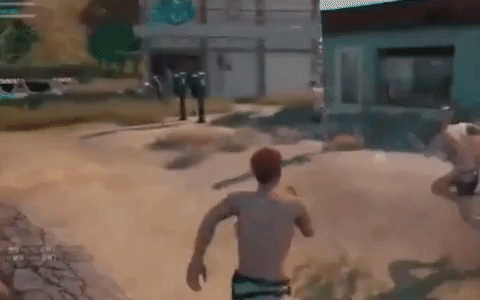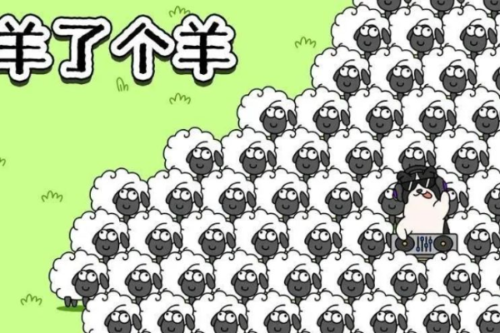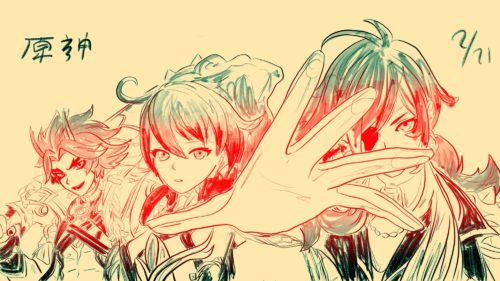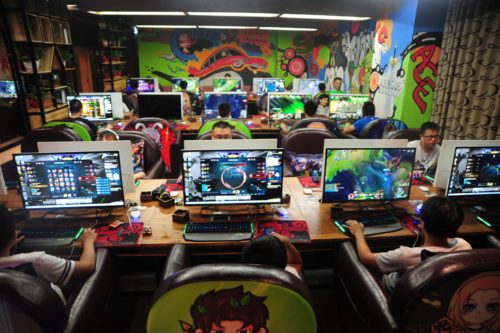Chinese gamers draw ire for dominating world’s most popular game

Question: What’s the difference between a victory arch, and a victory arch made with misbegotten gains?
Answer: None. Everything under the win column is the same.
With the recent announcement that Tencent would be awarded exclusive Chinese operating rights, the future is ensured for PlayerUnknown’s Battlegrounds, an online multiplayer game that is immensely popular thanks largely to China, where nearly half of its 20 million users are located.
And yet, things looked downright dire last month, when a Chinese media watchdog singled out Battlegrounds for improper content, prompting speculation that the video game wouldn’t receive a publishing license, leading to banishment.
It wasn’t the game’s depiction of violence and blood that was the problem. Instead, the China Audio-Video and Digital Publishing Association revealed it has “a negative attitude” toward the game’s battle royale objective of “simply killing everyone else as the ultimate goal of the game,” describing the goal as being a “deviation” from “socialist core values and traditional Chinese culture and ethical norms.”
Since the game’s debut last March, its popularity in China has skyrocketed. It is a constant fixture at internet bars and is regularly featured in player live-stream channels. Thanks to its legions of Chinese fans, PUBG has broken the record for the highest number of concurrent players on Steam, a multiplayer video-game platform. It welcomes a daily user base of about 2.5 million.
Unfortunately, the rise to fame for this formerly obscure game has been rocky.
The current beta version of PUBG suffers from a lack of optimization, which leads to unbalanced gameplay, assuming players are even able to get the game up and running smoothly. And yet, for all that Chinese gamers have done to increase PUBG’s profile, they are often at the center of a huge point of contention. Specifically, they’re hounded by a reputation for cheating.
It would be easy to conclude that the country with the most players would also be home to the most cheaters. However, China figures so prominently among PUBG cheaters that online multiplayer anti-cheat service BattlEye singled out the Middle Kingdom for hosting the “vast majority” of the 322,000 cheaters banned last month.
It’s not just this game. Cheating is an accepted part of the Chinese video-game community, one that isn’t even kept an open secret. The most popular post in a PUBG-dedicated Steam forum is a Chinese-written request for “trainers,” i.e., a readily available third-party software designed to exploit the game.
“I refuse to play with them now,” wrote one person on the Steam forum. “If they are in my squad (before the game begins), I just leave before the plane launches and keep doing this over and over until I get someone who speaks English.”
As it were, “cheating” doesn’t necessarily even require purchasing software. Many Chinese players indulge in the fact that they can cheat for free.
In PUBG, players often form groups within solo game modes as a way of gaining a tactical advantage. And PUBG players have often complained of being routinely defeated by teams of collaborating Chinese-speaking opponents, something demonstrated in this video, where a mob of Chinese players easily kills opponents with melee strikes.
All of this can be too much to bear. One person had to ask, “Why is this such a big thing with Chinese players?”
The reasons are numerous, but because Chinese players enjoy a sizable advantage as the dominant community in Battlegrounds, it can be easy to fall back on tribalism. Players might also yearn for familiarity, or to stay together in order to catch “crowded excitement” (热闹 rènào).
But above everything else, teaming up may be a way for Chinese players to display their national pride.
Despite being prohibited by the game’s rules, Chinese players regularly form alliances with players they don’t know so long as they both speak the same language. In this winner-takes-all scenario, Chinese players on PUBG are willing to eliminate “foreign” foes in order to allow one another a better chance at surviving longer.
And dare we say it: The willingness of the masses to fulfill a higher objective signifies the existence of a greater good — just the kind of “socialist value” that Chinese authorities criticized the game for lacking.
Alas, cheaters never prosper. The actions of Chinese players have drawn backlash from the rest of the gaming world.
One Korean streamer secretly infiltrated a group of Chinese PUBG players by wearing a red T-shirt, which is how Chinese players identify one another, only to betray them in the end with a single well-placed grenade.
The backlash isn’t limited to PUBG. An earlier battle-royale-type video game called H1Z1, itself notorious for rule-breaking Chinese players, is responsible for inspiring the “Taiwan number one” meme, a three-worded insult that targets mainland China’s sensitivity toward the self-governed renegade province.
Not everyone in China is a cheater, and Chinese players are hitting back against their bad reputation. One recent viral video shows a Chinese video-game player getting publicly rebuked and slapped for being a PUBG cheater. Elsewhere, this viral video shows two PUBG players from different countries overcoming their cultural divide with humor.
With Tencent as its official partner, Battlegrounds is now well suited to take on a Chinese market that has already spawned imitators willing to engage in a real-life winner-takes-all death match.
But whatever happens, Chinese players can rest assured that they did their part to uphold their core values — even if it meant taking a few shortcuts along the way.
I CAN SAFELY SAY THAT @PUBATTLEGROUNDS IS THE BEST GAME I'VE EVER PLAYED AFTER THIS. pic.twitter.com/ihWurI8JH6
— chris grant 😎 😎 😎 (@BIGHONKINBURGER) April 21, 2017








